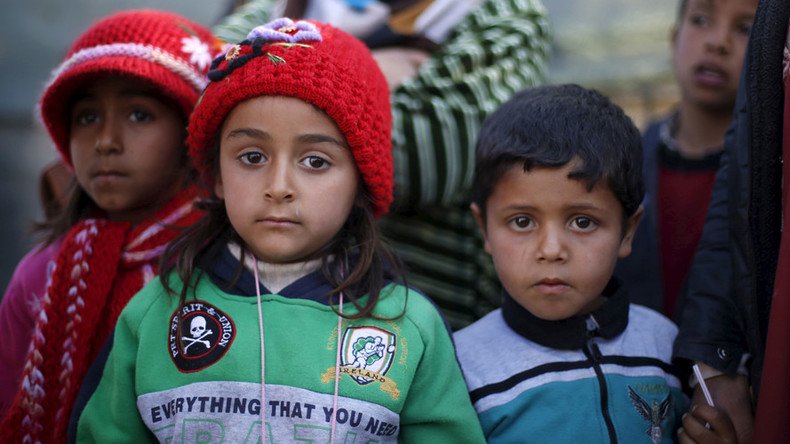Syrian children found in Turkish garment factories making British high street brands

H&M and Next, two of Europe’s biggest garment retailers, have found Syrian refugee children working in their supplier factories in Turkey, according to a report by a company ethics watchdog.
Of the 28 major brands questioned by the Business and Human Rights Resource Centre (BHRCC) about conditions at their supplier factories in Turkey and the potential exploitation of undocumented Syrian children and adults, only H&M and Next confessed to finding children working in the factories.
New report: Company action to address exploitation of Syrian refugees in Turkish garment factories: https://t.co/xlqKrlrPOT
— BusinessHumanRights (@BHRRC) February 1, 2016The admission has sparked concerns that the problem may be much more widespread and that many of the companies are keeping quiet about abuse.
Both H&M and Next said that after identifying the children they took action to return them to school and to support their families.
The BHRCC praised the two retailers “taking concerted action to protect child refugees found in their factories.”
The ethics watchdog estimates that 250,000 to 400,000 Syrian refugees work illegally in Turkey – the third largest supplier of clothing to Europe after China and Bangladesh.
Other companies, including Primark and C&A, said they had identified undocumented adult Syrians in the factories, while M&S, Asos, Denhams and Superdry did not answer the question at all.
“Only a few brands appear to have engaged with the extent and the complexity of these issues in their Turkish supply base; even fewer report taking action to protect these vulnerable workers,” the BHRRC said.
We reached out to 28 garment brands about their action on this issue: https://t.co/xlqKrlrPOThttps://t.co/NVMbiBntVT
— BusinessHumanRights (@BHRRC) February 1, 2016Turkey has taken in the largest number of Syrian refugees in the world, accepting some 2.5 million people who have fled the country in the wake of the five-year civil conflict. Just this month, Ankara finally announced it would be giving refugees the right to work as part of an effort to curb the number of refugees entering Europe.
Meanwhile, the UK continues to face criticism for its stringent refugee policy. More than 120 leading economists have penned a letter urging Prime Minister David Cameron to take in a “fair and proportionate share of refugees, both those already within the EU and those still outside it.”
Last fall, Cameron pledged to resettle 20,000 refugees in the next five years, a figure lambasted by critics as being far too low compared with the amount of refugees taken in by other European countries. Germany accepted 1.1 million refugees last year, while Sweden has taken in 160,000.
The letter follows open appeals by 350 of the UK’s top lawyers and 27 NGOs and charities, including Amnesty International and Oxfam, for the British government to do more to support refugees.
The economists argue the UK has in recent history taken in far larger numbers of refugees, at a greater rate, and yet managed it successfully. In 1972 the UK welcomed thousands of Ugandan and Asian refugees who went on to make an “extraordinary contribution” to the country, they said.
“Refugees should be taken in because they are morally and legally entitled to international protection, not because of the economic advantages they may bring. Nonetheless, it is important to note that the economic contribution of refugees and their descendants to the UK has been high,” the economists wrote.
Last month, a report by the International Monetary Fund (IMF) found the refugee influx could deliver long term economic benefits to the EU if the refugees are properly integrated into the job market.












